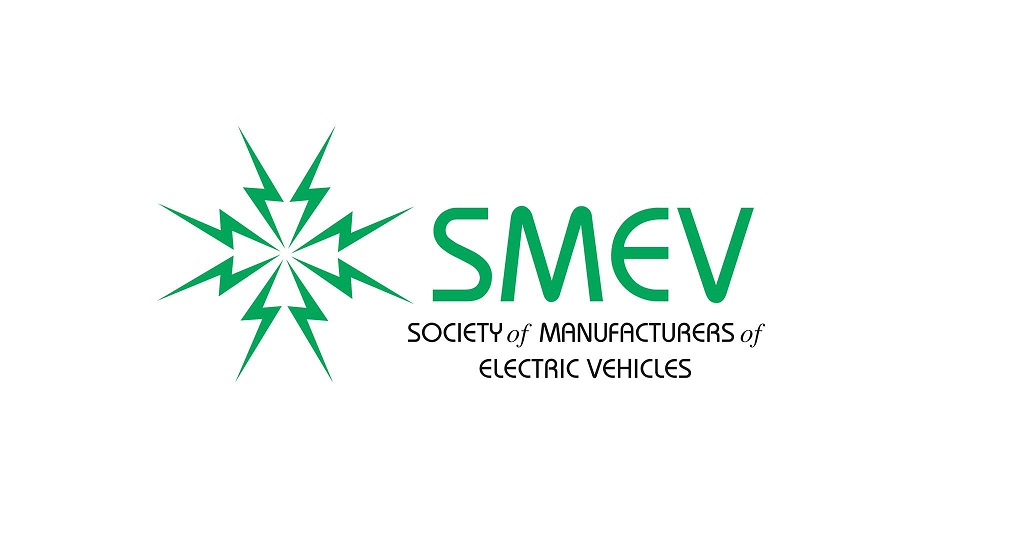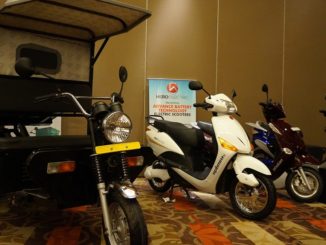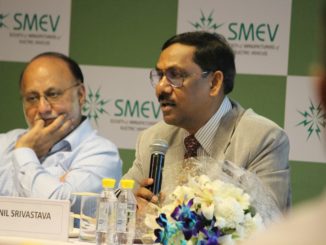Concessions on tax, easy credit, loans, infrastructure, battery replacements need of the hour: Sohinder Gill
“The forthcoming budget is expected to create a favourable and stable policy environment to achieve India’s electric vehicle target and revive industry with a long-term extension in the FAME policy (ending this financial year)”, said Sohinder Gill, Director Corporate Affairs, Society of Manufacturers of Electric Vehicles (SMEV), while sharing the industry’s wish list for the upcoming Union Budget 2017-18.
SMEV, an apex body for the promotion of electric vehicles in India, is expecting the desired thrust to the industry, on pressing issues starting from infrastructure to finance.
“The industry is currently moving at a snail’s pace and is far from the target of 6-7 million electric/hybrid vehicles in India by the year 2020 as in the National Electric Mobility Mission Plan 2020. It will gather the desired momentum with support from the government, in the form of subsidies, tax incentives and infrastructure development,” Mr Gill added.
SMEV has demanded the following from the Union Budget:
GST
A special treatment for Electric Vehicles via special exemption from GST different from the auto industry. SMEV is already working with almost all the state governments to either exempt electric vehicles from VAT or reduce it to 5%.
Excise duty
Electric Vehicles should be exempted from 6% excise duty which is also levied on polluting SUVs, mid-sized vehicles and MPVs. Basic Excise Duty is charged at 6% on assessable value and there is 2% E cess and 1% HE cess.
Automobile Cess
The automobile cess has to be done away with, for it creates lot of processing hurdles in terms of time and documentation. The 0.125% of automobile cess is levied on clearance of vehicles, presently.
Reduced interest rate and prime lending by banks
The upcoming budget must consider lowering the interest rate for electric vehicle loan for buyers and reducing the prime lending rate for electric vehicle industry at easy interest rate for setting up factories, to enable mass manufacturing.
Subsidies for building charging infrastructure
Adequate charging infrastructure is required to enable the absorption of electric mobility paradigm in India. The budget must address the development of charging infrastructure and provide subsidy of up to 25% of the cost of the charges.
Subsidy on the purchase of second battery
The government must announce at least 35% subsidy on replacement of lithium ion battery packs for EVs for incentivizing faster adoption and larger lifespan, especially for electric two wheelers
Anti- dumping duty on import of Chinese E- Rickshaw
The domestic electric vehicles manufacturers have demanded the imposing of anti dumping duty on the import of substandard and low- grade E- Rickshaw from China to protect the indigenous industry.
Long-term policy support- FAME
The industry advocates for a minimum five-year extension of the FAME scheme of the Government of India for ensuring the stability and continuity in terms of policy support for the EV industry.
Mr. Sohinder Gill, Director Corporate Affairs, SMEV said, “To reduce India’s fuel import dependency, as well as to tackle the menace of vehicular pollution in our cities, the government has to be committed to galvanize the eco-system for E-vehicles in India. The urban transport in India needs to address numerous challenges, viz, deteriorating air quality, rising greenhouse gas emissions and mounting energy security risks. And here, electric vehicles (EVs) offer the best alternate mobility options to redress these adverse impacts.”



